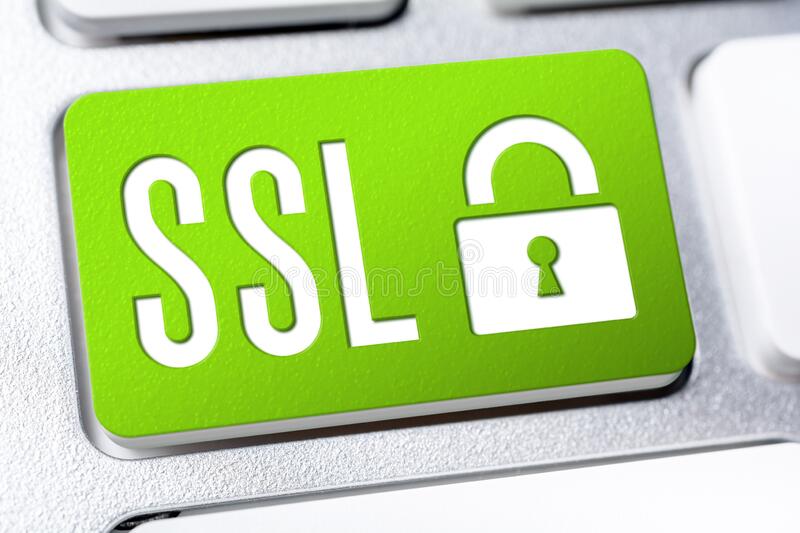News
Tax Talk Newsletter Spring 2021
Keep busy, keep in touch
Business is booming for trades people.
Many in the building industry are run off their feet. This is leading to them ignoring telephone calls and emails with the resulting customer frustration.
Trade cycles mean bad times will follow good ones. The time will come again when you will not have as much work as you would wish.
At these times, many people cut their prices to a minimum just to stay in work. Others go out of business and search for a job in an overcrowded market.
Now is the time to look after your customers and to make sure you keep in touch with them after you have completed their work. How, you ask, am I going to be able to handle all the telephone calls and get my work done?
Answering the telephone or returning calls doesn’t earn you money but it does earn goodwill. The trouble is it’s very time-consuming. The solution is to get your system as efficient as possible.
Responding to emails is quicker than ringing people. Therefore, leave a message on your telephone asking the caller to send you an email – unless they don’t use the internet.
It takes time to type out emails, so use a dictation app (often part of the computer software) so all you have to do is to say, into the computer microphone, what you want to tell the caller and press send. That doesn’t take very long and you can attend to lots of messages in a very short time.
Suggestion: If you can’t handle someone’s job it might be better to tell them and perhaps recommend another firm. They will probably appreciate your honesty and your competitor probably won’t keep in touch after the job. Of course, you will keep in touch – read on!
So now you have found out how to keep customers contented by returning their calls. To retain your customers, keep in touch with them continuously.
The easiest way is to email them a newsletter. Compile a database of email addresses of all your past customers and anybody else who might be interested in your newsletter, and keep building this database. One businessman we know has accumulated 7000 email addresses.
You don’t even have to send a whole newsletter. Just send tips which will be useful to the reader and, of course, make it clear who is sending the ideas. You should use these emails to add value for a customer rather than trying to sell them things. If you try to sell, you might irritate them and get more “unsubscribes”.
Benefits in on-time supplier payments
It was late Friday afternoon. Joe, who is no tech whiz, had just bought an expensive new router because he was fed up with the problems arising from the cheap one supplied by his internet service provider.
He rang his IT expert and asked for some help installing it.
“We will need to visit you to do this,” they said.
To Joe’s pleasant surprise the tech came out late on the Friday afternoon. After the job was completed, about half an hour after the tech should have finished work for the day, Joe thanked him for coming so quickly.
“The boss said I didn’t need to come but I explained you always pay your bills quickly,” he said.
A café owner, who always pays his suppliers on time or early spends about $5000 a month on coffee. Recently, the price of coffee went up but not to this owner. The supplier rewarded him for his prompt payments by not increasing the price. He in turn, was able to keep his prices stable
Is it good business to be a slow payer? What are you going to gain by holding on to your money – maybe 0.5 percent interest? It will work better for you by being a prompt payer. Suppliers are invariably thrilled to be paid immediately and are much more likely to look after you.
Cyber-attac ks a risk for all businesses
ks a risk for all businesses
The recent cyber-attacks on the Waikato District Health Board and other organisations has highlighted the danger for all businesses.
It’s not just big businesses being targeted. Small ones are also being asked for money to restore access to files and computer systems.
Ransomware is malicious software (malware) that encrypts files and stops you from being able to access your data and systems. Once the attackers have control, they demand a ransom so you can get your system and files back. Attacks can cripple a business, which is why the scammers can be so successful.
Prevention is critical. If you’re caught in a cyber-attack, you really have only two options – pay the ransom or rebuild your systems. Paying a ransom is not a good idea because you have no guarantee everything will be restored, and you will now be seen as an easy target willing to pay again.
So aim for prevention. The following steps will help protect you and your business from ransomware and cyber attacks:
- Use multi-factor authentication (MFA). It’s said to protect businesses from 99.9 percent of cyber-attacks. MFA means you can’t log in (to online services, social media, emails etc) without a code sent to your cellphone or an authentication app.
- Watch out for phishing (fraudulent messages). Don’t open strange emails, websites or links that could contain malicious software that infects your systems.
- Install updates for your software as soon as it’s available. Updates usually include strengthened security.
- Back up everything on the cloud or external hard drives so you can restore it all if you’re attacked.
- And if the worst happens, go offline immediately to limit spread of the malware. A simple way to do that is to unplug your computer network cables and your router.
As a small business you’re unlikely to have an IT expert on staff, so go to your internet service provider to help work out what happened and to avoid it again. It might also help to engage an IT professional.
A great source for more information is at cert.govt.nz
You donate – they look good
Some large corporations encourage you to make donations – and they look good because of it.
For example, you have a refund or some small change – would you like to donate this to charity? You pay, but the generous corporate looks good. Would this idea be useful in your business?
There’s now a variation to this. Inland Revenue has approved a corporate’s idea to convert loyalty points to donations. The difference is this time you can get a donations receipt and claim a rebate. This type of scheme might become more common.
Safe systems save lives
A tragic workplace fatality in the Bay of Plenty serves as a reminder for businesses that effective standard operating systems in workplaces are key to making sure employees stay healthy and safe at work.
These systems must be documented, implemented, communicated, and monitored to ensure they are effective, says WorkSafe New Zealand.
In March 2019, an employee died while assisting the unloading of dried lumber from one of the sawmill's kiln. He was hooking up a tow chain to the trolleys of dry wood with the intention of shifting it out of the kiln to make room for a fresh load of wood to enter.
Another employee, unaware that the victim was unloading the trolleys, used a forklift to push the fresh wood trolleys into the kiln, attempting to eject the dry wood trolleys from the opposite side of the building.
The victim was crushed between the trolleys and the rear of the loader he had reversed up to the kiln.
A WorkSafe investigation found a number of issues in the business’ procedures.
There was inadequate communication system when workers were loading/unloading the kilns, relying on employees to use their mobile phones and hand signals.
Similarly, while the business was in the process of developing a traffic management system, there was no system in place at the time of the incident to keep vehicles and pedestrians separate.
There was also no internal monitoring to ensure that employees were aware of the businesses safe operating procedures.
The business had no documented exclusion zones and no monitoring system in place to signal that the kiln was being loaded or unloaded.
“This is another preventable tragedy that could have easily been avoided with well-documented health and safety practice and effective communication of these practices. Because of an unsafe workplace, a father needlessly lost their life and will never return home to be with his friends and wh?nau,” said Area Investigation Manager.
Notes
- A fine of $212,625 was imposed.
- Reparation of $110,000 was ordered as well as $95,561.15 in consequential loss.
- The business was sentenced under sections 36(l)(a), s 48(1) and (2)(c) of the Health and Safety at Work Act 2015.
- Being a PCBU, having a duty to ensure, so far as reasonably practicable, the health and safety of workers who work for the PCBU while the workers are at work in the business loading/unloading kilns, did fail to comply with that duty and that failure exposed individuals, including the victim, to a risk of death or serious injury
S 48(2)(c) carries a maximum penalty of $1,500,000.
Source: www.worksafe.govt.nz
SSL a must-have for website trust
If you have a website, you should have SSL or more recently named TLS (Transport Layer Security).
That’s the simple advice in a modern world dominated by the internet. In fact, if you don’t have an SSL (secure sockets layer) certificate, you might already be seeing that Google Chrome and other browsers such as Firefox are flagging your website as possibly unsafe.
Google is doing it by releasing an https-only mode on its browser. The 's' stands for 'secure' (for example, http/www.accounts.co.nz/ is not secure, but the web address https/www.acccounts.co.nz/ is). The ‘s’ indicates you have an SSL certificate connected to your site, securing your website with the highest levels of encryption, protecting your customers and their data.
The browser warnings are not good news if you don’t have SSL. They are likely to significantly affect traffic to your website because visitors will feel unsafe. If they can’t trust your website, potential clients might not trust your business.
Another good reason to have SSL is Google, for example, indexes and rewards sites that use SSL by boosting search engine rankings.
Internet service provider (ISP) Openhost recently told customers 70 percent of online shoppers cancelled transactions due to lack of trust, 75 percent believed security logos increased trust in a site, and 79 percent expected to see a security seal on a sites home page.
Talk to your ISP internet service provider to get an SSL certificate.
Family trusts
The accounting for family trusts will become more complicated starting from the 2022 financial year. Financial statements will be required and other detail will need to be reported to Inland Revenue. This has come about due to the extra step of 39 percent tax on incomes over $180,000. Inland Revenue is concerned about the possibility of taxpayers avoiding the top tax rate.
Empower staff to do what’s right
Clare arranged for a celebration lunch to mark a special occasion. As she wanted to bring her dog, she asked, in her email, to have a table outside for her group.
The café rang 22 hours before the appointed time telling her they couldn’t accommodate her because there was no available space outside. They confessed they had only just read the detail in the email.
Clare wasn’t happy and after considerable thought expressed her disappointment on Facebook. This led to the café calling to apologise for what had happened and offering two free lunches as compensation. Full marks to the café for the apology and compensation. However, the damage done on Facebook could have been avoided if the person who originally called had been trained to put the matter right at the time. The message is – train your staff and empower them.
Important: This is not advice. Clients should not act solely on the basis of the material contained in the Tax Talk Newsletter. Items herein are general comments only and do not constitute nor convey advice per se. Changes in legislation may occur quickly. We therefore recommend that our formal advice be sought before acting in any of the areas. The Tax Talk Newsletter is issued as a helpful guide to our clients and for their private information. Therefore it should be regarded as confidential and should not be made available to any person without our prior approval.




